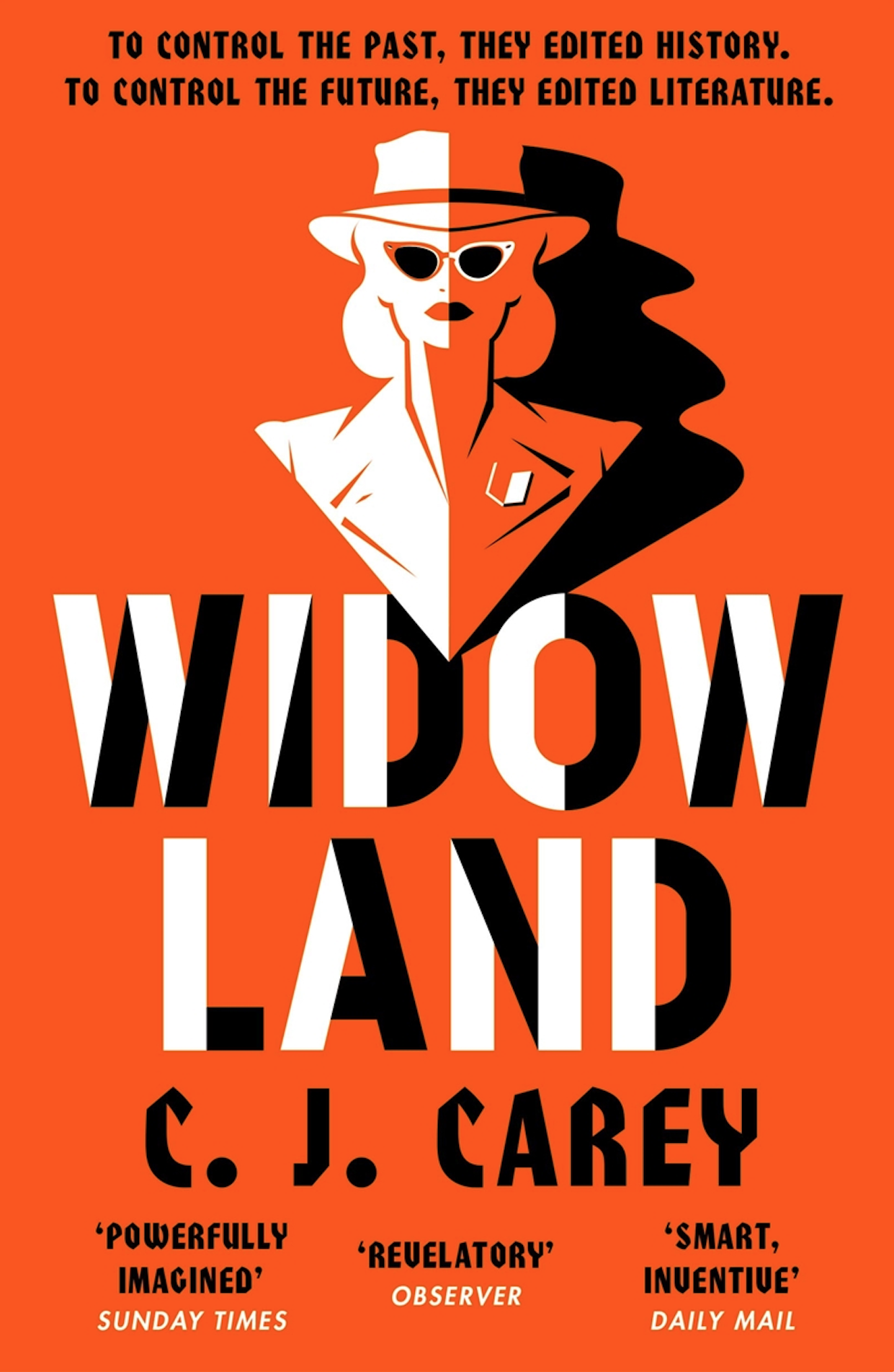Our book group choice for September 2022 is Widowland by C.J. Carey. It’s London, 1953. Thirteen years have passed since England surrendered to the Nazis and formed a Grand Alliance with Germany.
The year is 2022. The world has changed. A virus has swept the globe, killing millions and leaving millions more widowed. In this new world, widows are a marginalized group, often treated with suspicion and fear.
One such widow is Sarah. She lost her husband, John, to the virus two years ago. She is now raising their two young children, Ben and Mia, on her own. Sarah is struggling to cope with her grief and the challenges of single parenthood. She is also facing discrimination from the wider community.
One day, Sarah meets a group of other widows who are also struggling to adjust to their new lives. These women form a support group, and they begin to help each other cope with their grief and isolation. They also start to fight for their rights as widows.
The group’s activism soon catches the attention of the media. They are featured in a national news story, and their story inspires other widows to speak out. The group’s efforts help to change the public perception of widows, and they eventually achieve some measure of success in their fight for equal rights.
However, their victory is short-lived. The virus mutates, and a new wave of infections sweeps the globe. This time, the virus is even more deadly than before. Sarah and her fellow widows are forced to flee their homes and go on the run.
In the end, Sarah and her friends are able to survive. However, they are left with a legacy of loss and pain. They have witnessed the death of loved ones, and they have been forced to fight for their survival. But they have also found strength in each other, and they have learned to never give up hope.
Discussion Questions for Widowland
- Early on in the story, it’s stated that the Leader once said, “Women are the most important citizens in this land.” Discuss the irony of this statement that becomes evident as the story unfolds.
- Rose’s job was to “correct” literature that was degenerate, subversive, or didn’t align with the Protectorate’s values and teachings. What purpose did this serve for the Protectorate, and what does this say about the power of books and story?
- What regulations imposed upon women—particularly in the lower castes—by the regime did you find most egregious? Now think about your current situation: What regulations would you be at risk of breaking in such a society?
- Why do you think there was such a monumental celebration for the coronation of Edward VIII and Queen Wallis when it was largely ceremonial and they had no legitimate power over the UK?
- Rose’s six-year-old niece is part of a generation with no prior knowledge of life before the Alliance, while Rose’s father remembers it clearly. Discuss the generational impact of important historical events and how our perceptions of history change over time, depending on whether we lived through an event or merely read about it in history books.
- Rose appears to have conflicting feelings about Martin Kreuz. She is attracted to him “despite herself.” Why do you think this is? Do you think she had genuine feelings for him? Or did she enter a relationship with him out of obligation because of his position
and influence? - Citizens of the Alliance were encouraged not to think sentimentally about the past, and any suggestion that the past was better than the future was strictly outlawed as a “nostalgia crime.” The idea that a government could control people’s thoughts seems outlandish, but imagine a world where that could happen. Under these laws, would you ever be guilty of a nostalgia crime?

